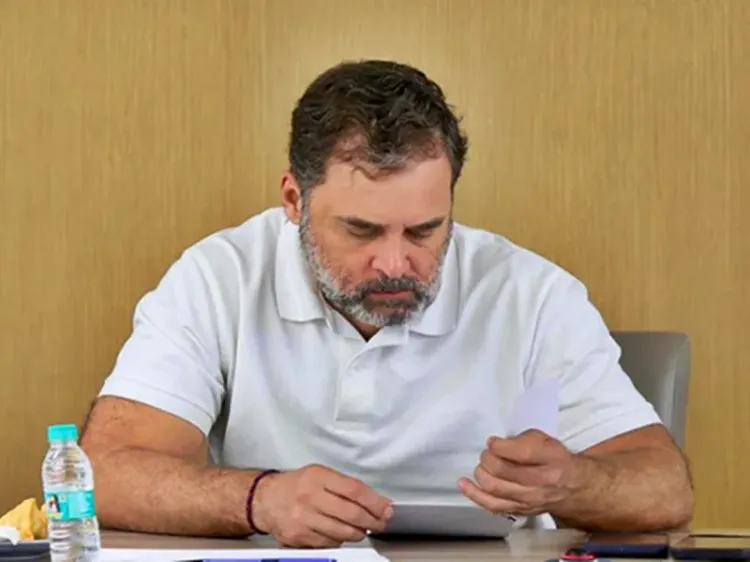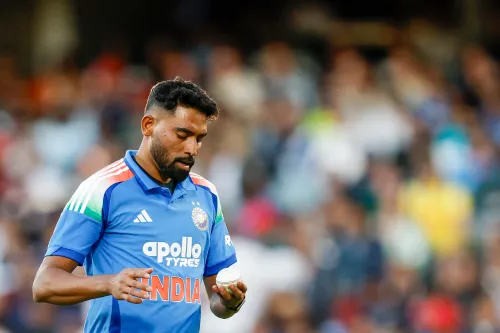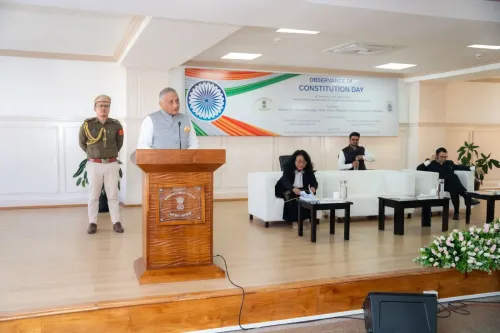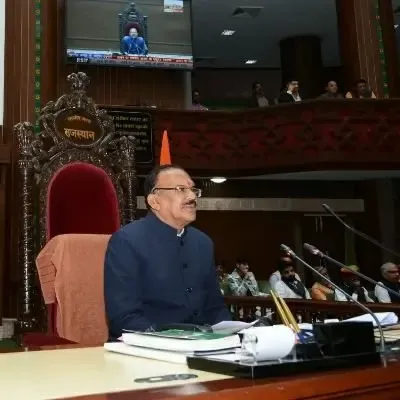Why is Rahul Gandhi Absent Amidst Rising SIR Protests in Opposition-ruled States?

Synopsis
Key Takeaways
- Opposition-ruled states are facing significant unrest over the SIR.
- Rahul Gandhi's absence raises questions about his leadership.
- Protests are gaining momentum in states like West Bengal, Kerala, and Tamil Nadu.
- Public discontent with the electoral process is at an all-time high.
- The Congress party is navigating complex internal challenges.
New Delhi, Nov 26 (NationPress) As the states governed by the Opposition gear up for elections next year, they are witnessing significant protests during the second phase of the Election Commission's Special Intensive Revision (SIR) of electoral rolls. Meanwhile, the leader of the Opposition in Lok Sabha, Rahul Gandhi, has largely kept a low profile.
While the Congress leader occasionally raises issues on social media, there has been little mention from the protesting INDIA coalition regarding his earlier so-called "exposure bombs" during the Bihar Assembly elections.
Since the results of the Bihar elections were announced, Rahul has been largely absent from public view. Unverified reports circulated on social media claimed he was spotted at Heathrow Airport in London, but these claims were dismissed by other Congress officials.
Recently, he has met with some Congress leaders and is reportedly engaged in discussions with the party's top brass concerning the current situation in Karnataka, where internal leadership disputes have resurfaced.
His absence is attributed to the Congress's disappointing performance in Bihar, alongside suggestions that it reflects his recurring inability to sustain focus on a movement or issue over extended periods.
There are also discussions about his apparent disappointment regarding his allies' reluctance to attribute the "vote chori" slogan to him.
In the meantime, despite the Election Commission's repeated denials and assurances backed by statistics, West Bengal's ruling Trinamool Congress, led by Chief Minister Mamata Banerjee and party general secretary Abhishek Banerjee, has initiated several anti-SIR protests.
The party alleges that numerous Election Commission Booth Level Officers (BLO) are experiencing severe stress, with some reportedly succumbing to work pressure, and cases of voters taking their own lives due to fears of losing their electoral rights.
With the Winter Session of Parliament set to commence next month, the party is planning an anti-SIR movement in Delhi, which includes a visit by its delegation to the Election Commission's office.
Insiders do not rule out the possibility of a demonstration at the Election Commission's office or outside Parliament, fearing a repetition of the tense standoff that occurred in 2023 outside the Agriculture Ministry in central Delhi over MNREGA fund allocations.
Simultaneously, Kerala is also experiencing a wave of SIR protests, organized by the ruling Left Democratic Front (LDF) partners, alongside legal petitions prompting Supreme Court notices and hearings.
Similar to West Bengal, BLOs in Kerala have protested, raising alarms about excessive workloads and unrealistic targets during the SIR enumeration phase, with similar reports of fatalities.
Government employees and local officials in Kerala have staged protests and demonstrations outside state electoral offices, demanding a postponement of the SIR until local body elections are completed.
The state's Opposition coalition, the United Democratic Front (UDF) led by Congress, has also publicly criticized the SIR schedule, signaling coordinated political action and non-cooperation if the timeline is not revised.
In Tamil Nadu, protests against SIR have been orchestrated by the DMK and its allies in the Secular Progressive government.
BLOs and revenue staff have boycotted the process, with legal petitions filed against the SIR initiative. Significant actions include statewide rallies led by the DMK, district protests organized by actor Vijay’s TVK, planned revenue staff boycotts, and petitions reaching the courts.
The Congress's dilemma in these states regarding direct alignment with the protests is complex; while it is part of the Opposition in West Bengal and Kerala, it serves as a minor partner in Tamil Nadu's Secular Progressive Alliance, where it secured only 10 of the 25 seats contested in the state's 234-member Assembly.









